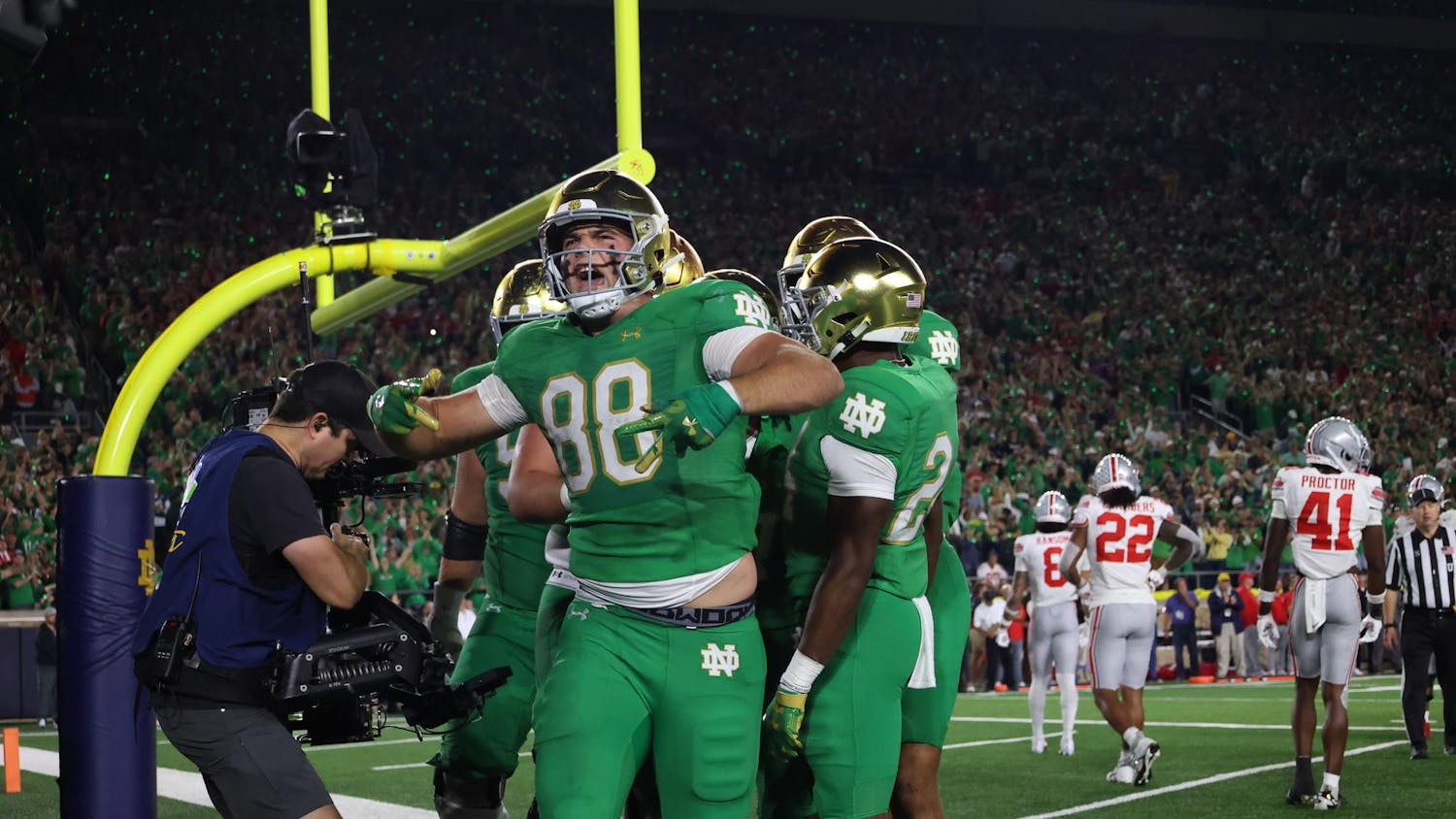Full disclosure; I know Monday was a very important sports day.
Video of Ray Rice beating up his then-fiancée, now-wife, surfaced in the morning, and the Baltimore Ravens released the running back by the early afternoon, with news of an indefinite suspension from the NFL coming shortly after.
Around the same time, the NCAA announced it will restore Penn State’s postseason eligibility this season, effectively ending the program’s sanctions that were applied in 2011 in the wake of the child abuse scandal.
There’s no way I could do these topics justice — the Ravens and the NFL did what they should have done several months ago, while the Penn State announcement is just the latest in a series of inconsistent decisions by the NCAA that deserve a more detailed explanation than what I can provide here.
So, we’ll go back to our regularly scheduled programming.
Unless you’ve avoided all forms of media, you know that yesterday marked the first Sunday of the NFL season.
It also marked the first Sunday of fantasy football, an activity in which nearly 37 million people participate, according to a CNBC.com article last month.
It also marked the first Sunday of this year when I saw the following question arise in my Twitter feed: “If my fantasy quarterback is playing against my favorite team, who should I root for?”
If you need to ask this question, you’re not worthy to be a fan of said favorite team. And you’ve also helped inspire me to list my main rules of sports fandom.
Never root for your fantasy players over your favorite team
I alluded to this before listing this rule, but I can’t reiterate it enough. Your fantasy players are a bunch of mercenaries hired to win what is usually a paltry sum of money, at least compared to the amount of time you’ve checked and toyed with your roster. If you’ve followed the other rules I’ve listed correctly, your favorite team has been with you most of your life and given you plenty of happiness and heartbreak. If you follow the money, you’ve sold out. And you don’t want your buddies to see you as a sellout, right?
Always root for the team in your city/geographical area
It may be tempting to rebel against those around you by picking a team with cool uniforms, a star player or that — gasp! — is about to win a championship. But it ultimately leads to loneliness. Sports is perhaps the strongest unifying factor for many cities and regions, and it’s incredible to share the camaraderie that builds from a big win or playoff appearance. Plus, do you really want to gain a reputation as the weird one who wears a San Diego jersey all around Atlanta or a Boston cap in Kansas City?
Once you pick a team, you’re basically bound to it for life
Yes, there are exceptions to this rule. You can switch teams if you get hired to work for another one, if your family member or friend plays for another one or if your team is relocated. Heck, I’m even fine with you picking a second team, provided it plays in a different city and conference from your original team. But you can’t just give up on a team because it has poor owners, it’s a perennial cellar-dweller, its coach is obnoxious or it changes its uniforms. And if you do decide you never want to see one of your teams again, you can’t come crawling back when or if it ever becomes good again.
You have to at least know the basics about your team
I don’t expect you to watch every game — very few of us have schedules that permit that, plus many people move from their native regions. But we are in the glorious age when television and the Internet make nearly every game available to us. With so many resources, there is no excuse for you not to know the majority of your team’s starting lineup, its upcoming schedule and the last year in which it won a title. And if you don’t, maybe you should pick most of its players when you draft your fantasy team.
That way, we won’t have to see inane tweets that lead to columns such as this.













